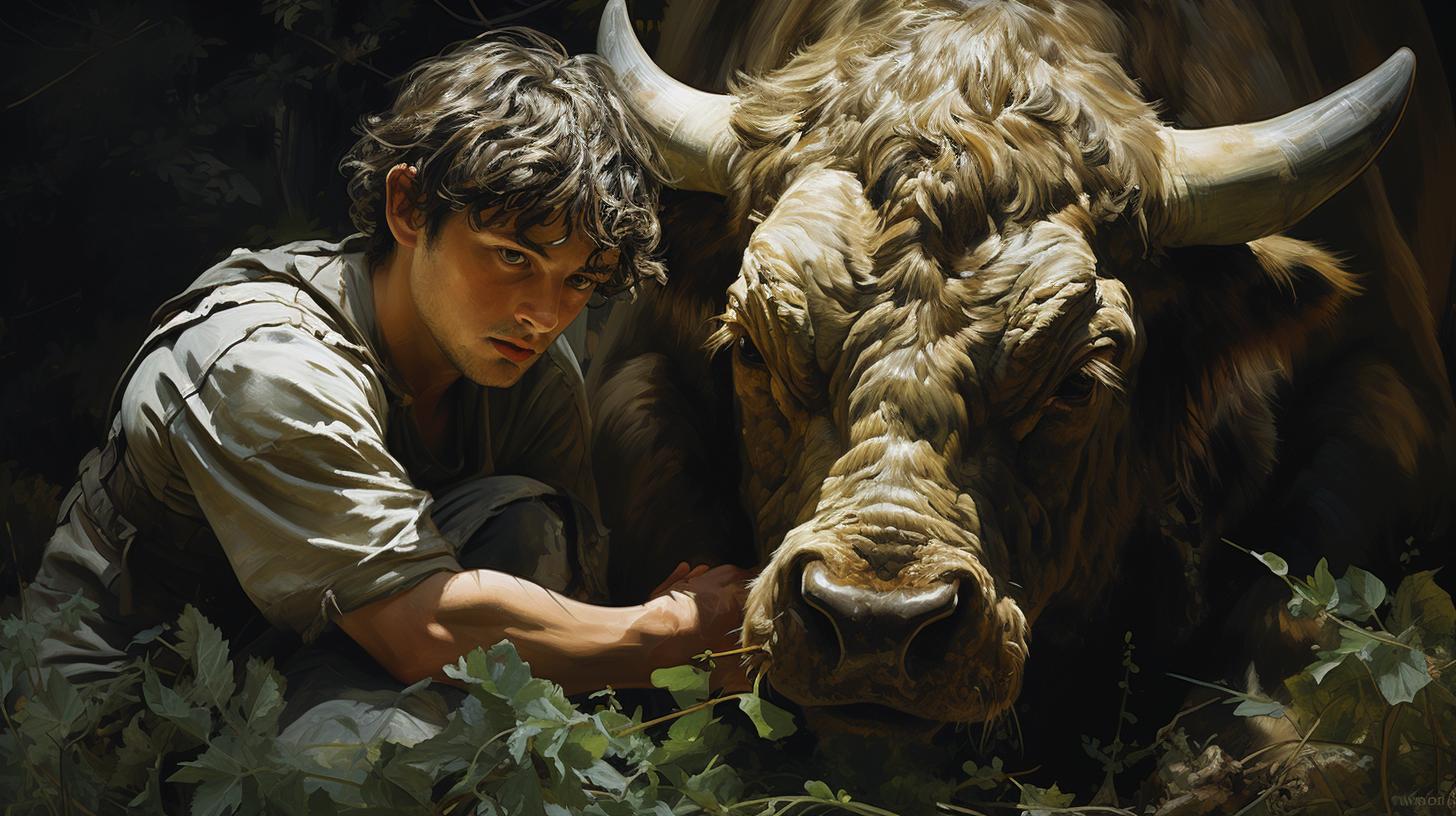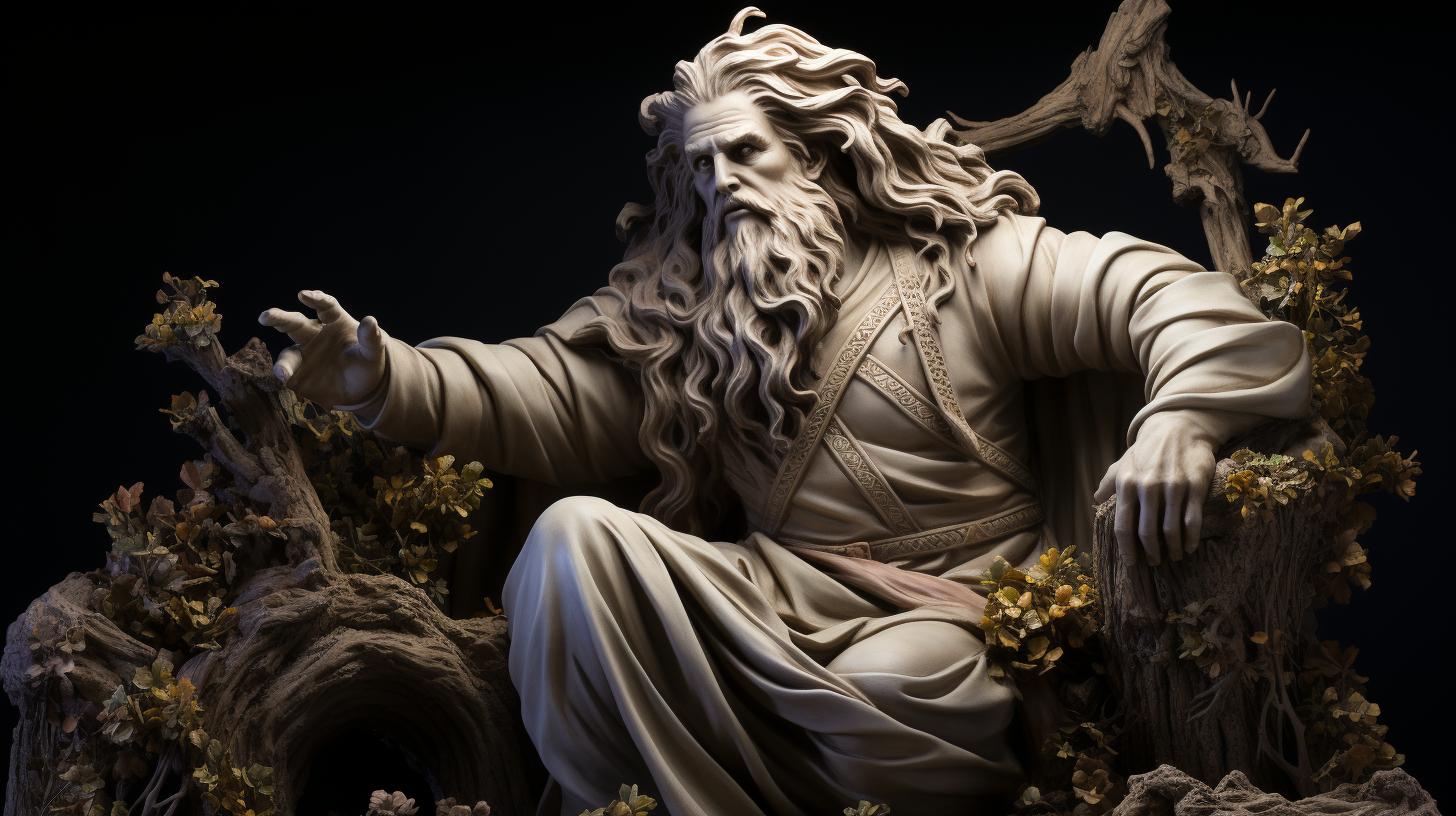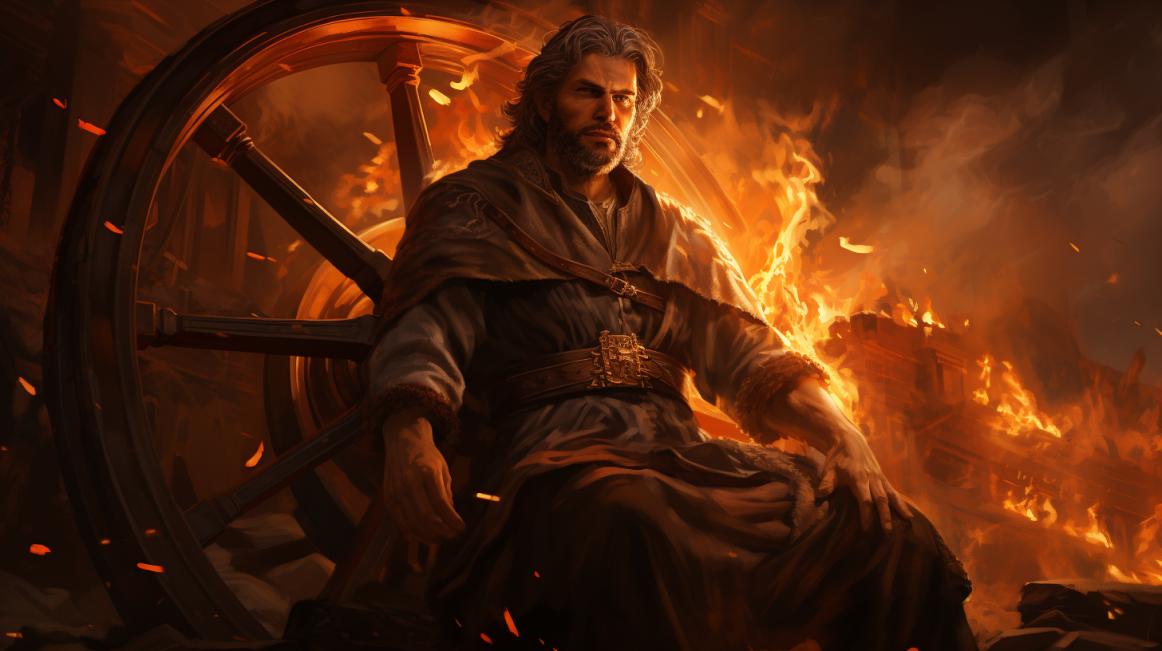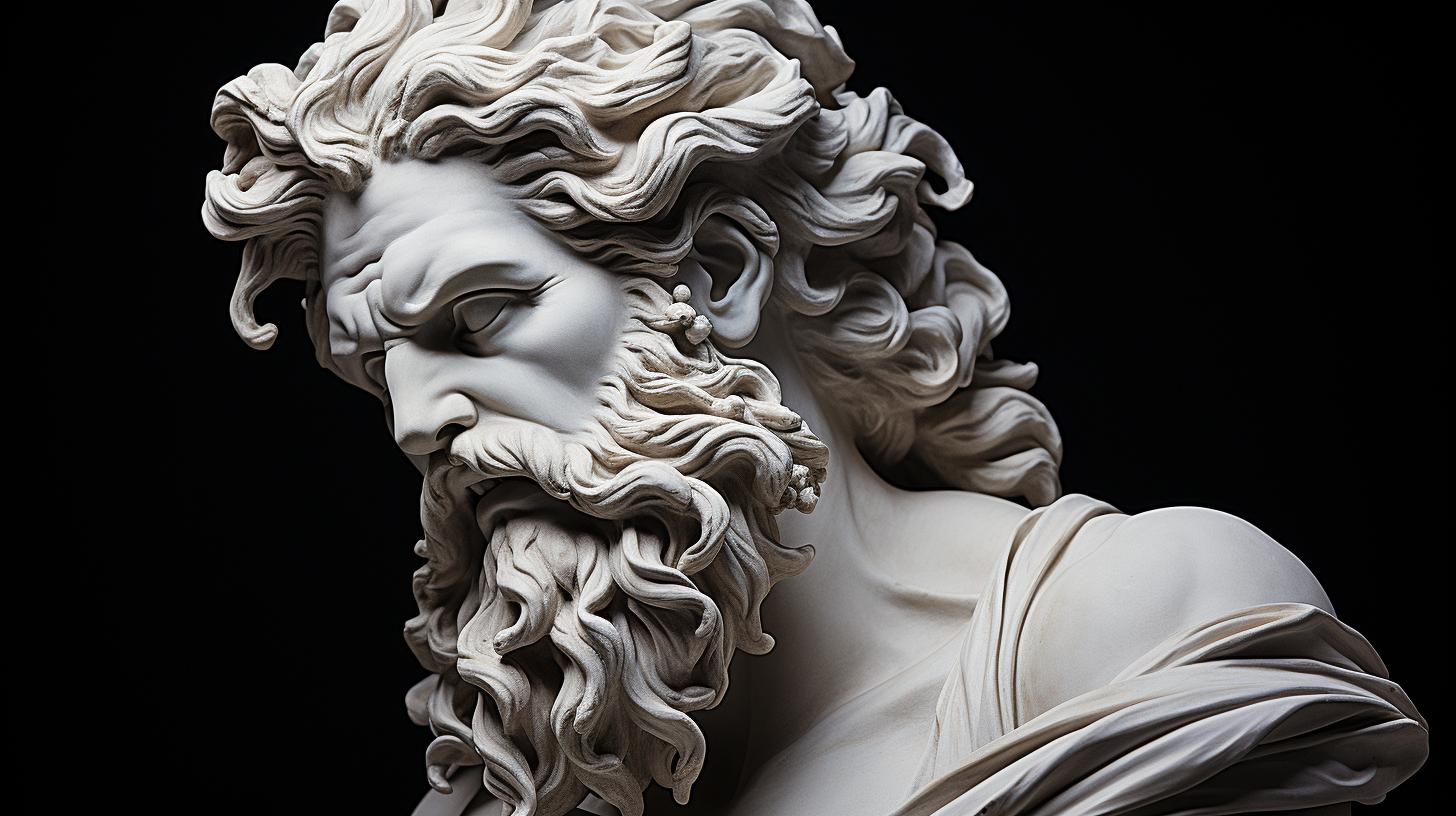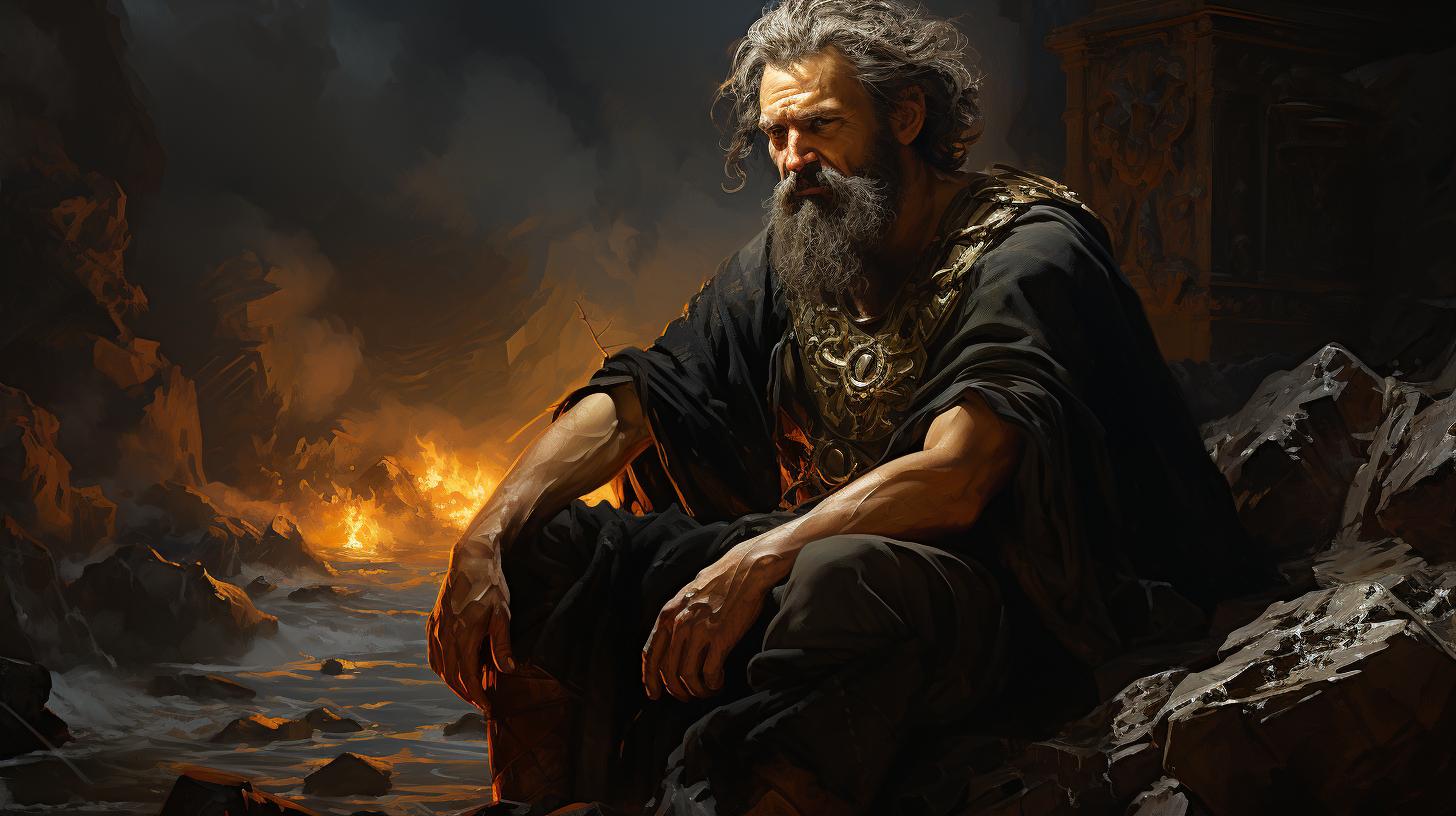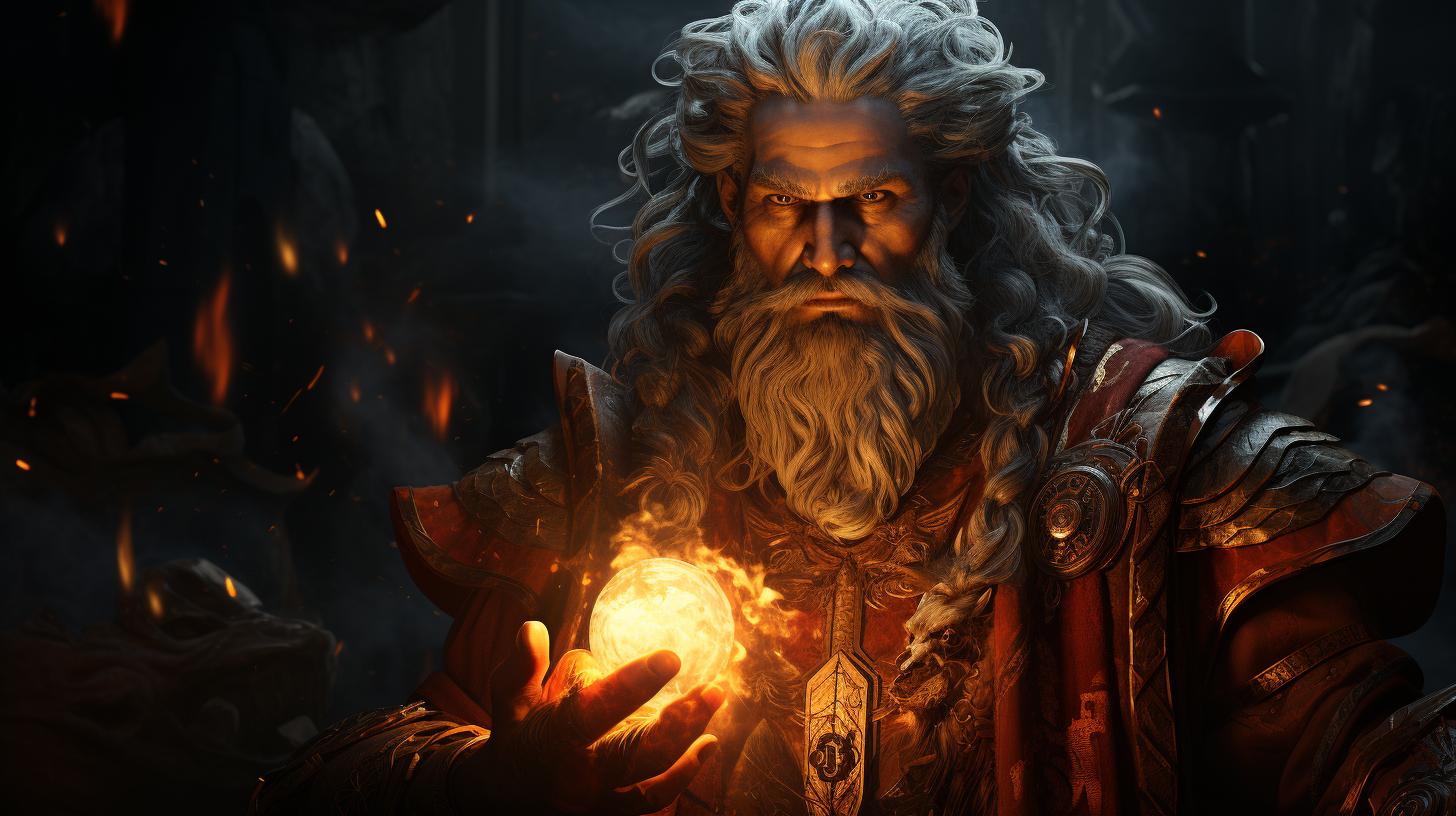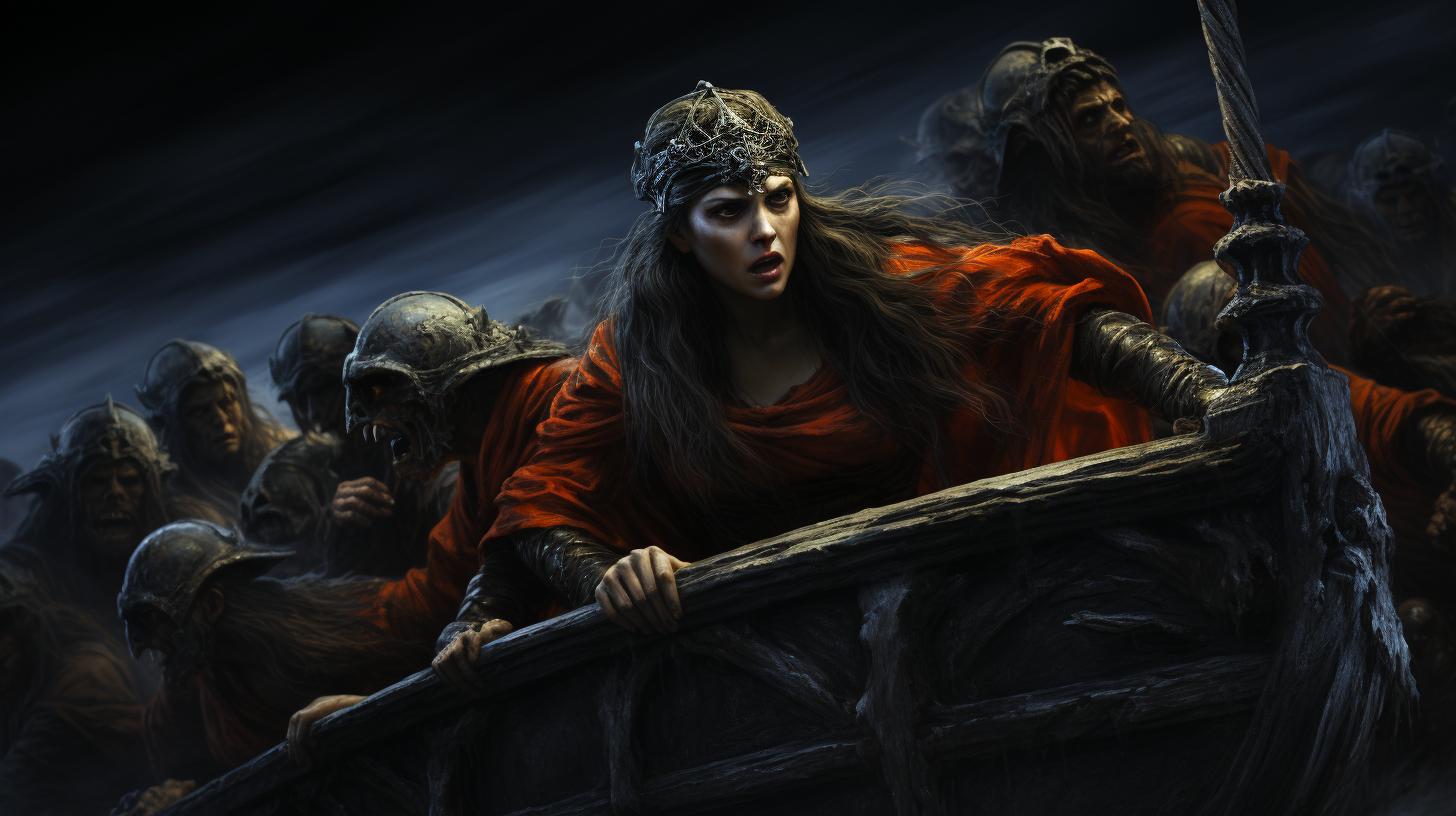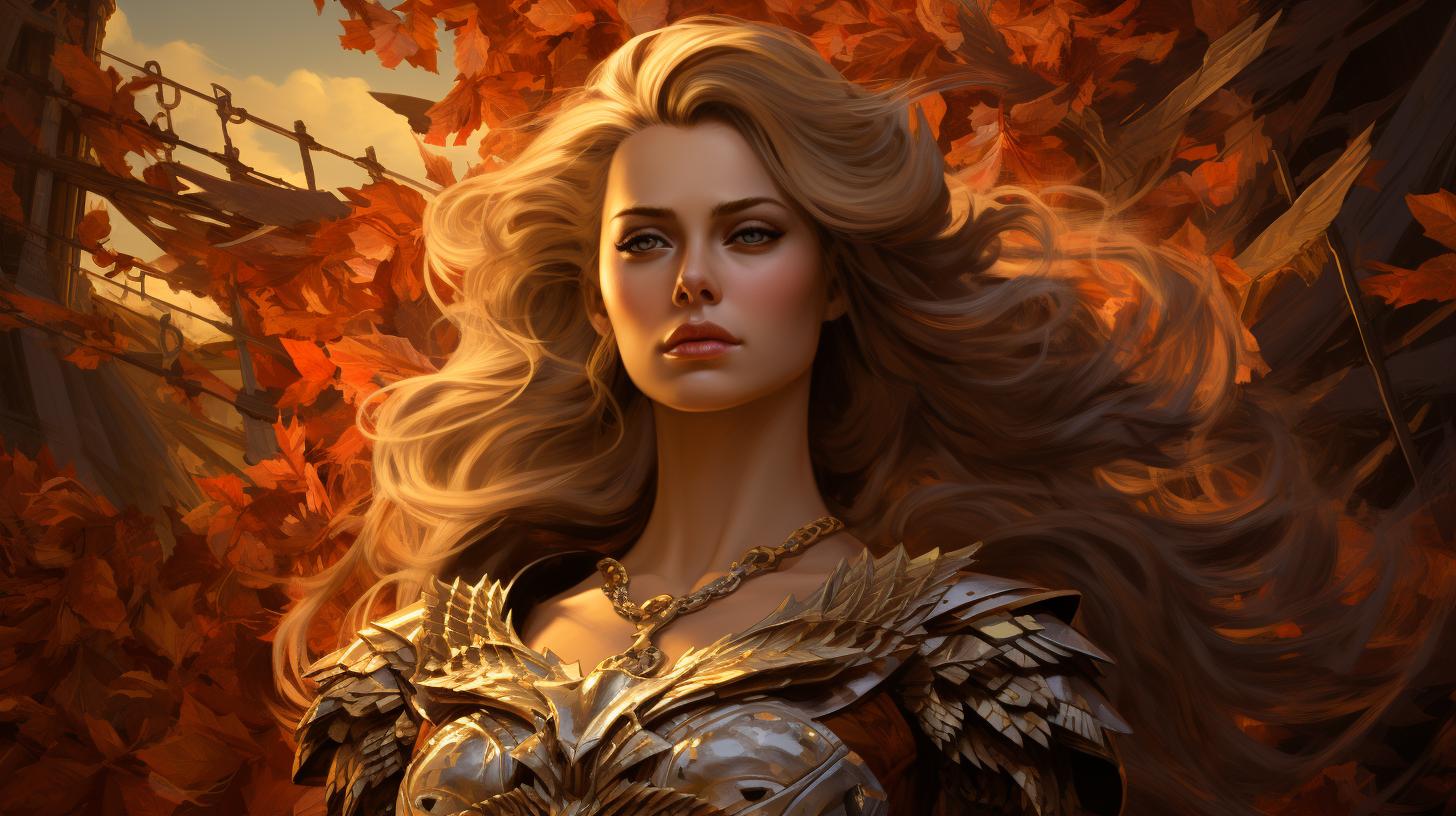Exploring the Heroic Tales of Meleager in Greek Mythology
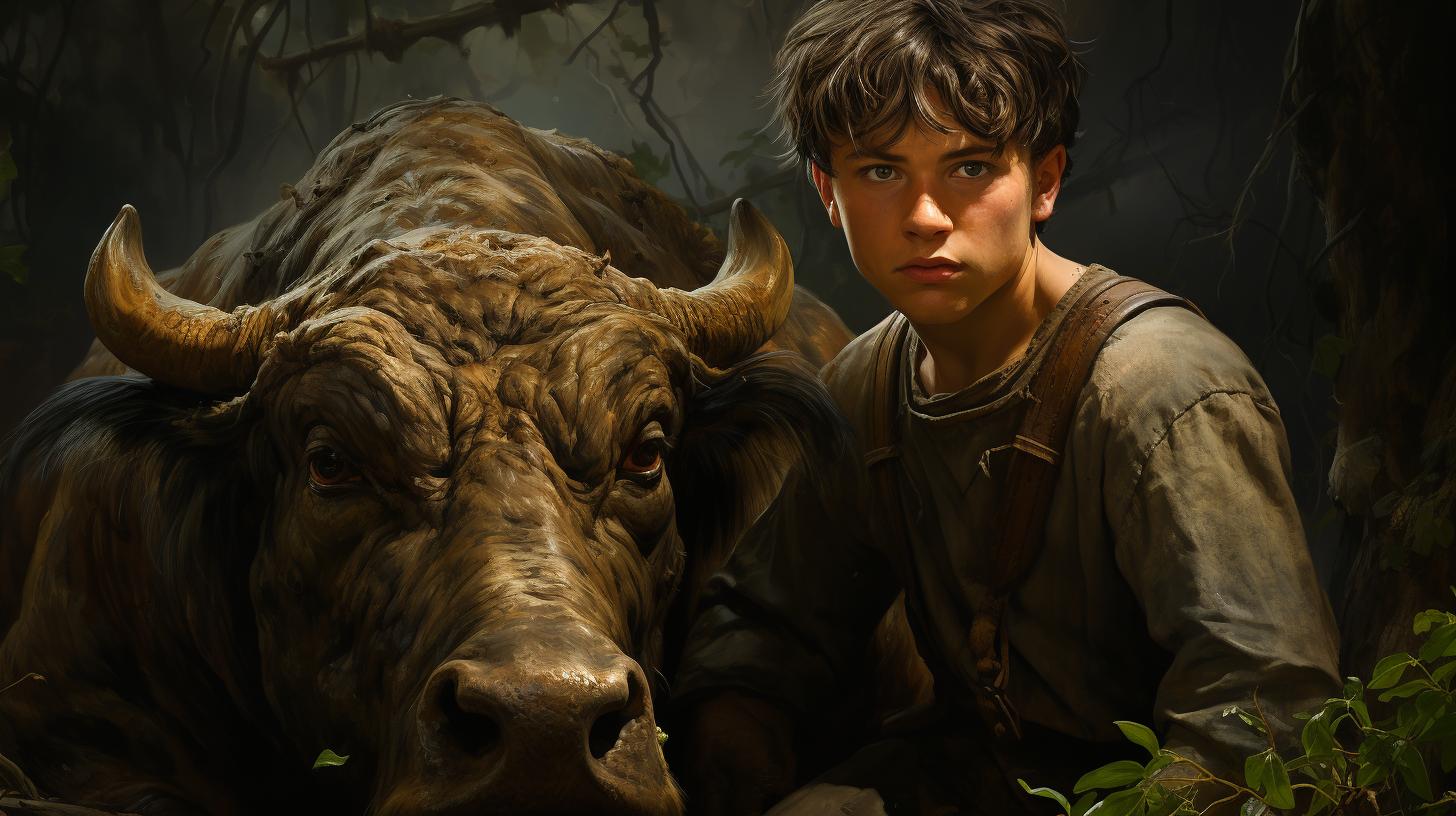
Meleager, a prominent figure in Greek mythology, was a heroic prince of Calydon. His story revolves around the renowned Calydonian Boar Hunt and his adventures. He was also known for his marriage to Cleopatra and his involvement with Atalanta during the hunt.
Meleager’s death, mentioned in Homer’s Iliad, holds significance. Additionally, Meleager’s myth has been depicted in Greek art and literature, including works by Euripides. This article provides an overview of the captivating tales and legacy of Meleager in Greek mythology.
Meleager in Greek Mythology
Meleager, a prominent figure in Greek mythology, played a vital role in various legendary tales. His story encompasses both heroic feats and personal tragedies, leaving a lasting impact on the mythological landscape.
The Legend of Meleager
The legend of Meleager revolves around his heroic deeds and his central role in the famous Calydonian Boar Hunt. As the son of King Oeneus and Queen Althea of Calydon, Meleager showcased great valor and led a band of exceptional heroes in pursuit of the ferocious boar sent by the goddess Artemis as retribution.
Origins of Meleager
Meleager’s lineage can be traced back to the royal bloodline of Calydon. Born to King Oeneus and Queen Althea, his heritage connected him to the realm of both mortals and gods.
Some versions of the myth even speculate that Ares, the god of war, could be his father.
The Calydonian Boar Hunt
The Calydonian Boar Hunt is a thrilling episode in the myth of Meleager, showcasing his bravery and leadership. It all begins with the devastating rampage of a ferocious boar sent by the goddess Artemis as punishment for King Oeneus’ failure to make a sacrificial offering.
The boar wreaks havoc on the kingdom of Calydon, prompting Meleager to take action.
The Boar’s Ravage and Artemis’ Wrath
The merciless boar, unleashed by Artemis, lays waste to the land of Calydon, destroying crops and terrorizing its inhabitants. Artemis seeks revenge for the neglect of her divine honor, casting her wrath upon the kingdom.
The chaos and destruction caused by the boar’s ravage are the catalyst for Meleager’s quest to restore order and defeat the monstrous creature.
Summoning the Heroes
Recognizing the magnitude of the threat, Meleager calls upon the most renowned heroes of his time to join him in the hunt for the Calydonian boar. These brave warriors include Jason, Theseus, and Atalanta, among others.
United by their common goal, they gather in Calydon, prepared to face the formidable challenge that lies ahead.
Meleager’s Leadership in the Hunt
As the appointed leader of the hunting party, Meleager demonstrates exceptional leadership skills, guiding his fellow heroes with strategic prowess. He inspires and motivates them to navigate the treacherous terrain and confront the ferocious boar.
Meleager’s unwavering determination and tactical acumen establish him as a worthy leader in the face of imminent danger.
Meleager’s Victory and the Aftermath
Through sheer courage and skill, Meleager emerges triumphant in the epic battle against the Calydonian boar. His precise spear throw finds its mark, ultimately slaying the monstrous creature and freeing the kingdom from its reign of terror.
However, the hunt’s success leads to unforeseen consequences as an intense dispute erupts over the division of the boar’s spoils between the Calydonians and the neighboring Curetes. This conflict proves to be a turning point in Meleager’s tragic destiny.
Meleager and Cleopatra
Meleager, the heroic prince of Calydon, was married to Cleopatra, a woman of great beauty and charm. Their union was celebrated throughout Greece, establishing a strong alliance between their respective realms.
The marriage of Meleager and Cleopatra was seen as a symbol of power and prosperity, solidifying their influence and position among the Greek city-states.
The Marriage of Meleager and Cleopatra
The marriage of Meleager and Cleopatra was a carefully arranged alliance that served both political and strategic purposes.
Their union brought together the kingdom of Calydon and Cleopatra’s royal lineage. As a prominent couple, Meleager and Cleopatra enjoyed a harmonious relationship, bolstered by their shared love, respect, and commitment to their kingdom.
Cleopatra’s Role in Meleager’s Story
Cleopatra played a crucial role in Meleager’s life and adventures. While she may not have engaged directly in heroic deeds like her husband, Cleopatra’s unwavering support and guidance were pivotal to Meleager’s success.
Her wisdom and counsel helped shape his decision-making, ensuring his actions aligned with their shared goals and the well-being of Calydon.
Furthermore, Cleopatra’s presence provided emotional strength and stability to Meleager, enabling him to face his trials and tribulations with confidence.
Her unwavering belief in his abilities and unwavering love served as a source of inspiration for his heroism and resilience in the face of adversity.
Together, Meleager and Cleopatra formed a formidable couple, united not only in love but also in their dedication to the prosperity and protection of the kingdom of Calydon.
The Story of Meleager and Atalanta
The captivating tale of Meleager and Atalanta unfolds during the epic Calydonian Boar Hunt, showcasing their remarkable partnership and tragic destiny.
Atalanta’s Involvement in the Boar Hunt
Atalanta, a fearless and skilled huntress, played a crucial role in the Calydonian Boar Hunt. Meleager, captivated by her prowess, insisted on her participation. Her exceptional skills and determination greatly contributed to the success of the hunt.
Meleager’s Love for Atalanta
During the perilous hunt, Meleager developed a deep affection for Atalanta. His love for her grew as they faced numerous challenges together, solidifying their bond in their shared bravery and heroism.
The Birth of their Son
As a result of their profound connection, Meleager and Atalanta had a child together. Their son was a symbol of their love and the powerful combination of their extraordinary abilities.
Fate and Tragedy
Despite their profound love, Meleager and Atalanta’s journey met a tragic fate.
Fate intervened as divine forces and family conflicts resulted in heart-wrenching consequences for both heroes. Their story serves as a reminder of the fragility of love and the unpredictability of destiny.
Meleager in the Iliad
Mention of Meleager in Homer’s Epic
In Homer’s epic poem, the Iliad, Meleager is briefly mentioned, although his story is not fully explored. He is referred to as a renowned hero who had already passed away before the events of the Trojan War.
The Iliad focuses mainly on the conflicts between the Greeks and Trojans, with Meleager serving as a distant figure from the past.
The Significance of Meleager’s Death
While the Iliad does not provide specific details about Meleager’s demise, it alludes to the tragic end of his life. According to the myth, Meleager’s mother, Althaea, plays a crucial role in his death by burning a log that was mystically linked to his existence.
As the log burns, Meleager’s life force diminishes, leading to his ultimate death.
The significance of Meleager’s death lies in the tragedy surrounding his existence. His demise represents the consequences of conflicts and curses within the realm of Greek mythology.
Meleager’s story serves as a cautionary tale about the destructive power of familial disputes and the weight of divine intervention.
Meleager in Art and Literature
Since Meleager’s legendary feats were widely celebrated in ancient Greece, his captivating story became a popular subject in both art and literature. Artists and writers often drew inspiration from Meleager’s heroic deeds, portraying him as a strong and handsome figure.
Meleager’s Representation in Greek Art
In Greek art, Meleager is depicted as a symbol of courage and skill. Paintings and sculptures often showcase him proudly holding spears, emphasizing his prowess with the javelin. These artistic representations capture the essence of Meleager’s heroism and serve as a reminder of his important role in Greek mythology.
Euripides’ ‘Meleager’ and Other Works
One notable work that focuses on Meleager is the play ‘Meleager’ by Euripides. Although only fragments of this play have survived, it offers insight into the character and his tragic fate.
Euripides’ portrayal of Meleager explores themes of honor, fate, and the consequences of human actions.
Aside from Euripides’ play, Meleager’s story appears in various other literary works, including poems and epics.
Writers often delved into the complexity of his relationships, particularly his marriage to Cleopatra and his love for Atalanta. These literary representations further contribute to the enduring legacy of Meleager in Greek mythology.
In conclusion, Meleager’s presence in both art and literature showcases his enduring popularity and significance in Greek culture. Through visual and textual representations, his heroic deeds and personal relationships are perpetuated, ensuring that his legacy as a brave and iconic figure lives on.
- Meleager’s Representation in Greek Art
- Euripides’ ‘Meleager’ and Other Works
.

